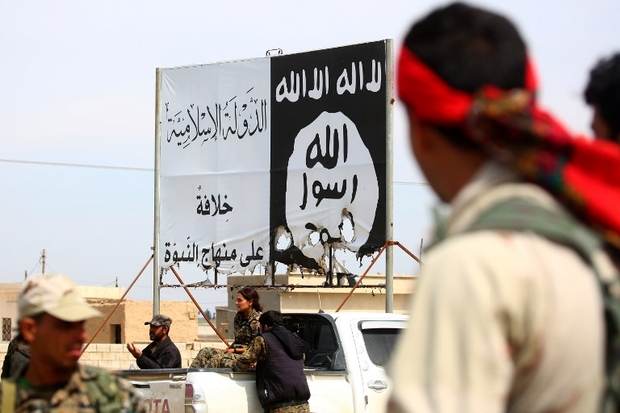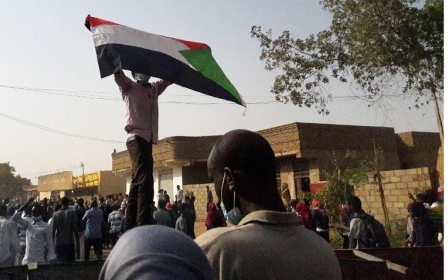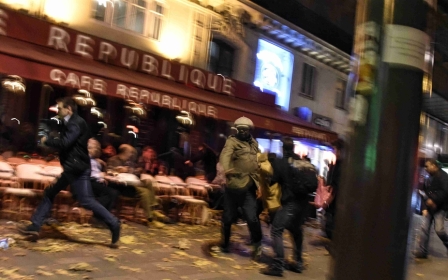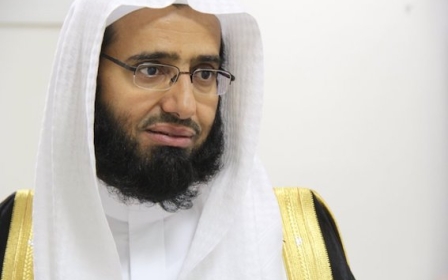Who speaks for Islam in the Middle East, new study asks
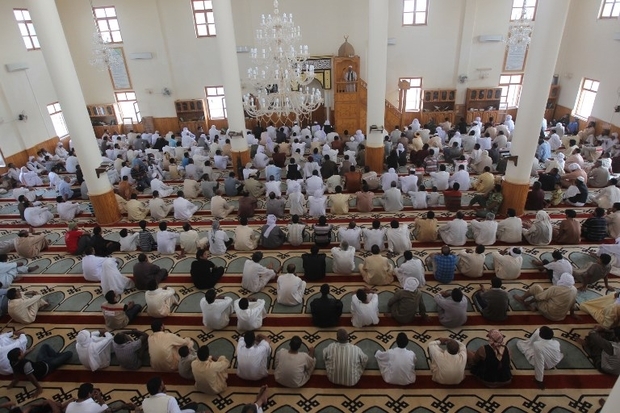
Their names are well known and their words carry weight depending on who’s listening.
To Muslims in the Middle East, Qatar-based Sheikh Yusuf al-Qaradawi; Rached el-Ghannouchi, co-founder of the Islamist Ennahdha party in Tunisia; Hassan Nasrallah of Lebanon's Hezbollah; and Egyptian preacher Amr Khaled are leaders in their own right.
But how much trust do individual Muslims have in these leaders' holds on religious authority? How much power do these figures actually wield? And more broadly, who speaks for Islam in the Middle East?
A new study by Rice University's Baker Institute for Public Policy has attempted to answer these questions.
To do it, the study's authors gauged the public's opinion towards religious leaders across a dozen countries in the region and mapped the channels that link average Muslim citizens to various actors who claim to hold religious authority, from mainstream Islamists and Salafists, to state-affiliated officials and scholars, to jihadis and Sufis.
New MEE newsletter: Jerusalem Dispatch
Sign up to get the latest insights and analysis on Israel-Palestine, alongside Turkey Unpacked and other MEE newsletters
Islamic authority has always puzzled United States policymakers because it is non-hierarchical and decentralised - with the exception of some hierarchy in Shia Islam - so the study was carried out in part to make recommendations for US officials.
A. Kadir Yildirim, a Middle East fellow at the Baker Institute in Houston, Texas, who oversaw the study, says the time has never been better to delve into Islamic religious authority in the region.
In fact, it's imperative, he said last week during an event at the Carnegie Endowment for International Peace, "when religious actors play an increasingly prominent role in the Middle East and the religion-politics nexus appears to have gained greater traction".
Mapping religious authority in the region is no easy task, however, said Yildirim.
12-country survey
Accordingly, the study's authors conducted a 12-country public opinion survey, asking about 16,500 respondents their views on 82 religious leaders.
The survey polled half of the 24 Muslim-majority countries in the Middle East, posing questions to members of the public in Bahrain, Egypt, Iran, Jordan, Kuwait, Morocco, Lebanon, Qatar, Saudi Arabia, Tunisia, Turkey and the UAE.
In addition to identifying six prominent religious leaders in each country, the poll also included questions about seven transnational religious figures.
The results painted a picture of a complex religious space that reflected Muslims' nuanced approach towards religion and its relationship with politics, explained Yildirim.
The findings on the popularity and religious influence of Islamist actors varied across the region, but in most countries polled, these figures carried notable approval.
For example, in Iran, where 2,032 people were polled, more than 50 percent said they approved of Ali Khamenei, the country's supreme leader.
In Morocco, where close to 3,000 people answered the survey, close to half of the respondents said they trusted Mohammed IV, the country's king, who explicitly claims religious authority as Amir al-Mumineen (Commander of the Faithful), according to the study.
But while some respondents agreed with the religious leaders' statements, in some cases they disavowed them once they were told who said them - if they generally held that person in disregard.
'Jordanians are highly religiously observant and endorse some role for Sharia in the country's constitution, but at the same time there does seem to be a public consensus against any mixing of religion with partisan politics'
- Scott Williamson, Stanford University
The poll asked respondents directly about their level of trust and approval of these religious figures. They also asked some questions indirectly - due to the sensitive topics discussed - to make the statements, not the leaders, the main focus, Yildirim said.
The study's findings also showed that state-affiliated religious figures enjoyed widespread trust and approval among respondents, contrary to the surveyors' expectations.
The survey also found that these figures wielded the most influence in countries where religion is a key element of national identity, such as Iran, Jordan and Saudi Arabia.
But there was a caveat: support was conditional on the figures using a nonpartisan approach to religion.
"Jordanians [for example] are highly religiously observant and endorse some role for Sharia in the country's constitution, but at the same time there does seem to be a public consensus against any mixing of religion with partisan politics," said Scott Williamson, a PhD candidate at Stanford University and a Graduate Research Fellow at the National Science Foundation.
"For instance, Jordanians really don't want religious officials or mosques influencing voters' choices and elections," Williamson said.
Extremist discourse
The most concerning finding in the study, however, Yildirim said, is that "extremist religious discourse has a sizeable audience".
The respondents shunned extremist figures like Islamic State (IS) group leader Abu Bakr al-Baghdadi when asked directly. But support for al-Baghdadi's views was high when respondents were asked to respond to his statements - without his name being revealed.
Support was particularly high in Tunisia, Jordan, Saudi Arabia and Morocco - countries from which large numbers of citizens have left to join IS in Syria.
Based on their findings, the study's authors made several recommendations for US policymakers, including a call for a long-term strategy in Syria to achieve social reform and address major issues that feed extremism.
They also said that policymakers should look to state religious leaders who have considerable influence and could boost reform efforts in the realms of education, women's rights and democratisation.
This was the case in Jordan and Tunisia, for example, where such policies led to changes in inheritance laws and family planning.
Citing Tunisia as an example, the study's authors said Islamists could play either the role of spoiler or driver of reforms, just as the ruling Ennahdha party did in the aftermath of the Jasmine Revolution.
State actors' limitations
Indeed, while it's important to engage state actors, "it’s essential to understand their limitations ... since their authority is by no means absolute", said Courtney Freer, a fellow at the London School of Economics (LSE), whose work focuses on Arab Gulf states.
Freer said "the rise of the Sahwa movement in the 1990s and more recently in 2011" in Saudi Arabia is a good example of this.
The Saudi Islamist movement heavily criticised American intervention in the Gulf and called for greater democracy and political reforms in the kingdom.
'Religious actors play an increasingly prominent role in the Middle East and the religion-politics nexus appears to have gained greater traction'
- A. Kadir Yildirim, Middle East fellow at the Baker Institute
The movement was once "by far the largest and best organised non-state group, with arguably hundreds of thousands of members ... [whose] mobilising capacity is huge", according to Stephane Lacroix, an assistant professor at Sciences Po and the author of Awakening Islam: The Politics of Religious Dissent in Saudi Arabia. The group has since been sidelined.
Freer also noted that "state-linked authorities who were once considered more widely influential across borders no longer wield the influence they once did".
"I think [this] is most clearly evidenced by the overwhelmingly negative endorsement we saw regarding the Grand Imam of al-Azhar," she said, referring to the study's finding that only 26 percent of respondents in Saudi Arabia trusted Ahmed El-Tayeb, even though al-Azhar is Sunni Islam’s oldest seat of learning and an important institution for Islamic religious doctrine.
In the end, the Baker Institute study presents an opportunity to devise foreign policy that can better address issues such as extremism and violence, its authors concluded.
But it's crucial not to limit engagement with religion and religious figures in the Middle East simply along the lines of extremism, cautioned Yildirim.
"Religion permeates various aspects of life in societies across the Middle East," he said.
"Reducing it to extremism and extremist violence alone compromises the ability of the US foreign policy to engage with a much larger population and a broader set of issues."
Middle East Eye delivers independent and unrivalled coverage and analysis of the Middle East, North Africa and beyond. To learn more about republishing this content and the associated fees, please fill out this form. More about MEE can be found here.


